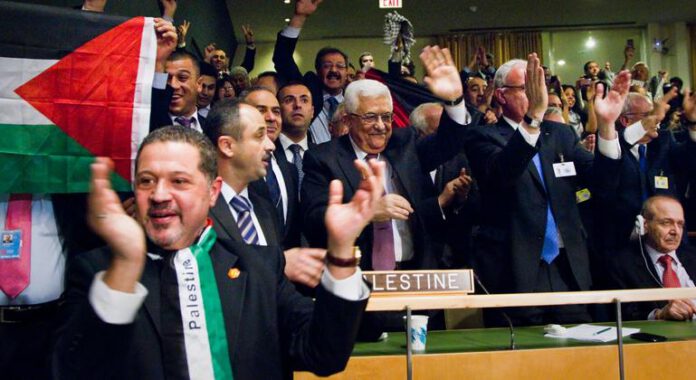
In September 2025, a historic wave of global recognition for the State of Palestine swept through the international community, with 152 of 193 UN member states officially acknowledging its sovereignty. Yet, amidst this overwhelming consensus, the United States and Israel chose absence and defiance. The symbolism of their empty seats in the General Assembly could not have been more telling: for all the lofty rhetoric about international norms, when power is at stake, principles are discarded.
This moment laid bare what has long plagued the global legal order: the systematic application of double standards, rooted in the asymmetry of power and the enduring legacy of a Western-centric legal architecture. International law, despite its universalist claims, has always been a terrain of contested narratives, where rules are bent or upheld according to strategic interests—not shared values.
The question is simple: why was the legal framework effective in legitimizing the creation of Israel in 1948, yet impotent in securing the same for Palestine nearly 80 years later? The answer lies not in legal technicalities, but in a structural bias deeply embedded in the international legal order—one that privileges the powerful and selectively weaponizes law under the guise of norms.
The notion that international law is neutral is a myth. It was built within and by the colonial project, under the so-called “standard of civilization,” a doctrine that codified which states were deemed rational actors and which were not. These civilizational hierarchies remain thinly veiled under liberal institutionalism. As long as global power asymmetries persist, double standards will not be an anomaly, but a core feature of international law.
Recent global conflicts have further exposed this duplicity. While Russia’s invasion of Ukraine drew swift legal condemnation, the same legal institutions have remained hesitant, even paralyzed, when addressing Israeli actions in Gaza. Calls to prosecute Israeli leaders for war crimes face fierce resistance—despite mounting evidence—while similar demands against non-Western actors proceed with ease. This is not justice; it is geopolitical expediency dressed in legal language.
More insidiously, legal inconsistencies are justified through appeals to identity. Israel insists it must not be morally equated with Hamas, invoking its democratic credentials as immunity against accountability. But this distinction only reveals a deeper pathology: the use of identity to escape the universality of law. Such framing rests on a psychological mechanism long known in critical theory: projective identification, where one’s own violence is denied and externalized onto the “other.” The result is a legal and moral inversion where perpetrators are cast as victims, and victims are criminalized.
The West, particularly the U.S., continues to invoke international norms only when convenient. When unfavorable rulings emerge—from the International Court of Justice or the International Criminal Court—they are dismissed or ignored. When allies violate the same norms, silence prevails. These patterns have not gone unnoticed by the Global South, which increasingly views international law not as a shield of justice, but as a tool of control.
Yet paradoxically, it is these very countries—those historically excluded from the creation of international law—that are now its fiercest defenders. Nicaragua, South Africa, Vanuatu, and many others have turned to the courts not out of naïveté, but out of strategic resolve: to turn the tools of the system against its architects. This is the essence of using the master’s tools to dismantle the master’s house—or at the very least, to force a reckoning.
The legitimacy of international law is in crisis. Not because law itself has failed, but because those entrusted with upholding it have treated it as optional. The West’s selective engagement with international norms reveals a deeper truth: it is not committed to law, but to a legal order that preserves its dominance.
If this trend continues, the danger is not merely the erosion of legal credibility. It is the collapse of any shared basis for global order. A world where law is applied only to the weak is a world that invites disorder, not stability. The alternative is not relativism or chaos—but a more inclusive, multipolar legal dialogue that acknowledges pluralism without surrendering to hypocrisy.
History will not be kind to a system that speaks of justice while practicing impunity. The time has come to confront the uncomfortable truth: international law, as it stands, does not bind the powerful—it enables them. That must change.
Source: China US Focus, BBC, UN News, Carta Capital



